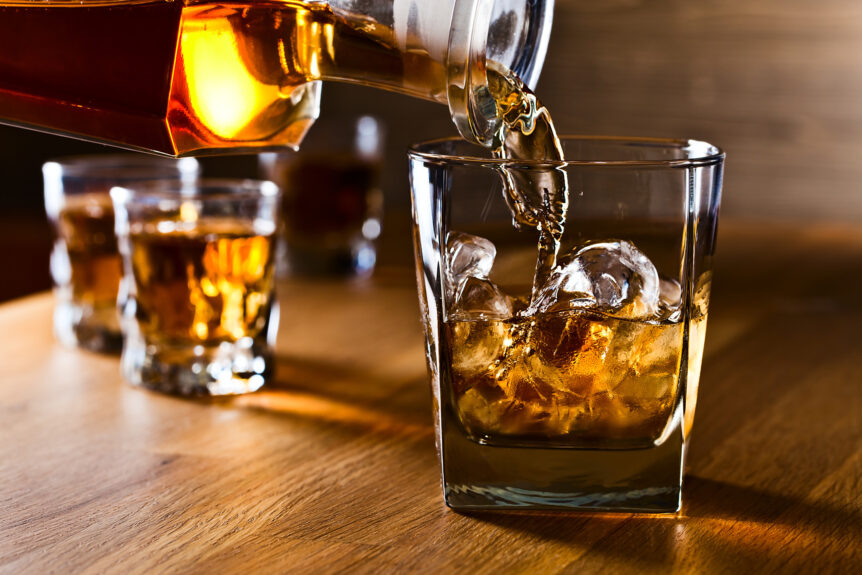
Irish vs. Scotch Whiskey: What Are the Differences?
Glasses up! More than 100 distilleries are in operation throughout Scotland, producing premium whiskies.
But Scottish distilleries have a lot of competition. Irish distilleries produce thousands of bottles of whiskey a year, and it can be hard to tell what the differences are. Before you order your first glass, you should know about the Irish vs. Scotch whiskey debate.
What are the main differences between the types of whiskey? What is the production of Irish whiskey like, and how is Scotch whisky made? How can you prepare them, and what should you pair them with?
Answer these questions and you can find the perfect whiskey for you. Here is your quick guide.
Malting and Fermentation
Both Irish and Scotch whiskies rely on barley. Most forms of whiskey use malted barley, which is barley that is soaked in water and dried with hot air. This prevents the barley from germinating and produces a smoky flavor.
Irish whiskey uses a blend of malted and unmalted barley while Scotch relies on purely malted barley. The blend can give several different flavors to Irish whiskey. Scotch tends to be simpler, smokier, and less sweet.
After the barley is dried, distilleries can mash the barley and ferment it. Some Irish distilleries add sugar and yeast, which can make Irish whiskey sweeter than Scotch.
Distillation
The fermentation process produces alcohol, but it also produces other ingredients, including mashed barley. Distillation uses heat to separate the alcohol from the other ingredients, producing a strong drink.
Distillation may be the biggest difference between Irish and Scotch whiskies. Irish whiskey is traditionally distilled three times, but Scotch is distilled only twice.
This means that Irish whiskey is smooth with a low alcohol by volume level. The flavor is less intense, so you can drink more of it without becoming overwhelmed. However, Scotch offers more flavors on your initial sips, and it can have stronger aromas than Irish whiskey.
Maturation
Once distillation is done, a distillery stores the whiskey inside wooden bourbon or whiskey barrels. Irish law requires distilleries to age Irish whiskey for at least three years. This allows the whiskey to develop flavors and aromas found in its containers.
Most Irish distilleries use oak casks, which are wider and longer than American and Scottish barrels. The casks can add flavors similar to toasted nuts and vanilla to the whiskey, though the exact flavors vary depending on the cask.
Scottish law also requires the distillation of Scotch for three years. Many whiskies are far older, with single malt whisky usually being at least 10 years old. Some distilleries even mature their Scotch for 50 years.
Scottish barrels tend to be smaller than Irish barrels. This means that the Scotch has less exposure to oxygen. Oxygen allows for the creation of new aromas and flavors, so a lack of oxygen means the Scotch is more concentrated and pure.
Both Irish and Scottish distilleries can use barrels from other countries. Some distilleries like to use ones from the United States, Spain, and Portugal. These barrels vary in size, and they can leave unique flavors in the drinks.
Some distilleries mature their whiskies in barrels that were used for other drinks. A Scotch may have notes from wine or beer, which can create a balance of flavors.
Taste and Pairings
Because whiskey is sweeter than Scotch, you can pair it with a variety of meals. Some people like to drink whiskey with meat, including lamb chops and filet mignon. Other people like to save whiskey for lighter dishes or dessert, as whiskey accompanies chocolate well.
Scotch can overpower the flavors of many foods, such as vegetables and soups. Try pairing it with foods that can offset the flavor of the Scotch. Sweet foods like fruit can work.
Whiskey Drinks
Irish whiskey is an extremely versatile drink. You can find it in drinks like Irish coffee, which combines whiskey with black coffee, brown sugar, and heavy cream.
You are less likely to find Scotch in a cocktail, though you can make drinks like the Affinity and the Rusty Nail. You can also try out Scotch in different ways, including by mixing it with ice or water. Popular mixers include orange juice, green tea, and cola.
Regions and Varieties
Each region of Ireland and Scotland has its own version of whiskey. Single malt Irish whiskey is whiskey made from barley within a single distillery. Single pot still whiskey has a mixture of malted and unmalted barley, with some distilleries adding oats and wheat.
You can also buy Irish grain whiskey, which can have rye, wheat, or corn instead of barley. This can produce a sweeter or nuttier drink.
Many types of Scotch are mixed. You may buy a bottle that has whiskies from two or three different distilleries with a blend of barley and wheat.
The Highlands of Scotland is where many popular brands of Scotch come from. Scotch from this area tends to be sweet with flowery and herbal notes. If you’re more interested in grain whiskey, you can buy Scotch from the Lowlands and distilleries based in Edinburgh.
Irish vs. Scotch Whiskey
The line between Irish vs. Scotch whiskey can be hard to find. Irish whiskey uses a blend of grains and is less distilled than Scotch.
If you’re a beginner at drinking whiskey, you may want to start with Irish whiskey. It’s also a good drink if you want to make cocktails or interesting pairings with food. Once you’ve tried tasting different whiskies, you can move on to Scotch, which has more concentrated flavors.
Start your journey in whiskey with the right tools. The Northeast Barrel Company provides premium tools, including authentic whiskey barrels. Contact us today.
